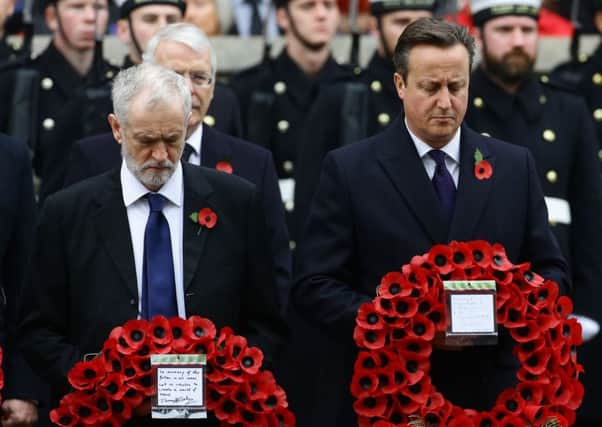Army chief would ‘worry’ if Jeremy Corbyn was PM


Mr Corbyn said the comments by General Sir Nicholas Houghton were a breach of the constitutional principle that the military did not intervene directly in matters of political dispute.
He said that he would be writing to Defence Secretary Michael Fallon calling on him to ensure that the principle of “the neutrality of the armed forces is upheld”.
Advertisement
Hide AdAdvertisement
Hide AdHis intervention came after Sir Nicholas said he would “worry” if Mr Corbyn became prime minister with a commitment never to use Britain’s nuclear deterrent.
Appearing on BBC1’s The Andrew Marr Show, he warned that a premier who had made clear – as Mr Corbyn has done – there were no circumstances in which they would press the nuclear button would undermine the credibility of the deterrent.
Mr Corbyn said: “It is a matter of serious concern that the chief of the defence staff has today intervened directly in issues of political dispute.
“It is essential in a democracy that the military remains politically neutral at all times. By publicly taking sides in current political arguments, Sir Nicholas Houghton has clearly breached that constitutional principle.”
Earlier however, shadow defence secretary Maria Eagle – who has her herself criticised Mr Corbyn’s remarks – insisted that the general was entitled to speak out on the issue. “I understand the point that he is making. It is the point that I made myself when Jeremy said what he said,”
Sir Nicholas said that his concerns were for the credibility of the deterrent if there was a prime minister who had declared that he would never authorise its use.
“It would worry me if that thought was translated into power,” he said.
“The reason I say this – and it’s not based on a personal thing at all – is purely based upon the credibility of deterrence. The whole thing of deterrence rests upon the credibility of its use.”